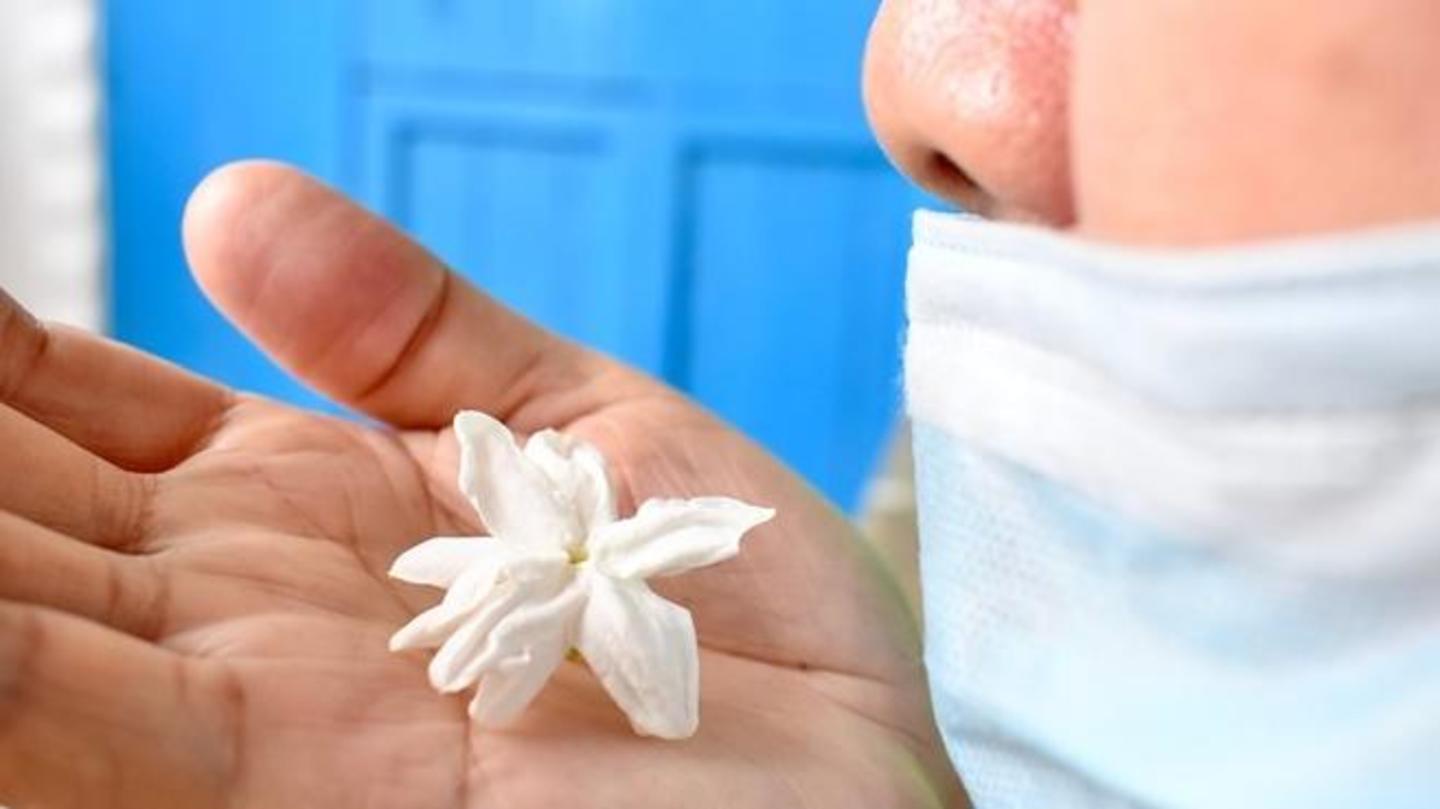
Health Ministry adds loss of smell, taste to COVID-19 symptoms
What's the story
The Health Ministry has expanded the list of symptoms of COVID-19 to include the loss of smell and taste.
After several patients reported experiencing a loss of taste or smell, the World Health Organization had added them to the list of COVID-19 symptoms in April.
Many European Union countries, the United States, Australia, the United Kingdom, etc. already include the two as COVID-19 symptoms.
Details
Loss of smell/taste added to list of 9 other symptoms
In a document listing the clinical management protocol for COVID-19, the Health Ministry added the loss of smell (anosmia) and loss of taste (ageusia) to a list of nine other symptoms.
The other symptoms include fever, cough, fatigue, shortness of breath, expectoration, sore throat, and diarrhea.
Older people and immune-suppressed patients may experience fatigue, reduced alertness, reduced mobility, etc., the document added.
Testing
Currently, 13 symptoms allow patients to be tested for COVID-19
There are 13 symptoms in the specimen referral form.
The symptoms include fever, cough, diarrhea, vomiting, abdominal pain, breathlessness, nausea, hemoptysis, body ache, sore throat, chest pain, nasal discharge, and sputum.
If a patient exhibits at least one symptom, they can be tested for COVID-19.
If anosmia and ageusia are added, a patient would have to report one of 15 symptoms to get tested.
Tranmission
'Direct person-to-person transmission occurs upon close contact'
The Health Ministry's document also mentioned that direct person-to-person transmission occurs upon close contact, mainly through droplets that are released when the infected person either coughs, sneezes, or talks to another person.
The document said that these droplets may land on surfaces and infection may occur if a person touches the surface and then touches their eyes, nose, or mouth.
Treatment
Remdesivir, other treatment methods, listed as investigational therapies
The document mentioned the use of remdesivir and the off-label use of tocilizumab and convalescent plasma therapy for the treatment of COVID-19 in specific groups of patients.
For example, remdesivir has been approved for emergency use patients with "moderate disease" (those on oxygen support).
However, it cannot be administered to persons with severe renal impairment, pregnant or lactating mothers, or kids below 12 years.
Quote
Use of convalescent plasma therapy, tocilizumab
The document stated, "Convalescent plasma (off-label) may be considered in patients with moderate disease who are not improving (oxygen requirement is progressively increasing) despite use of steroids."
It said, "Tocilizumab (off-label) may be considered in patients with moderate disease with progressively increasing oxygen requirements and in mechanically ventilated patients not improving despite use of steroids."
The document elaborated on special considerations for both treatments.
Quote
'Hydroxychloroquine should be used in early disease course'
For hydroxychloroquine, the document stated, "This drug should be used as early in the disease course as possible to achieve any meaningful effects and should be avoided in patients with severe disease." An ECQ is recommended before prescribing the drug.